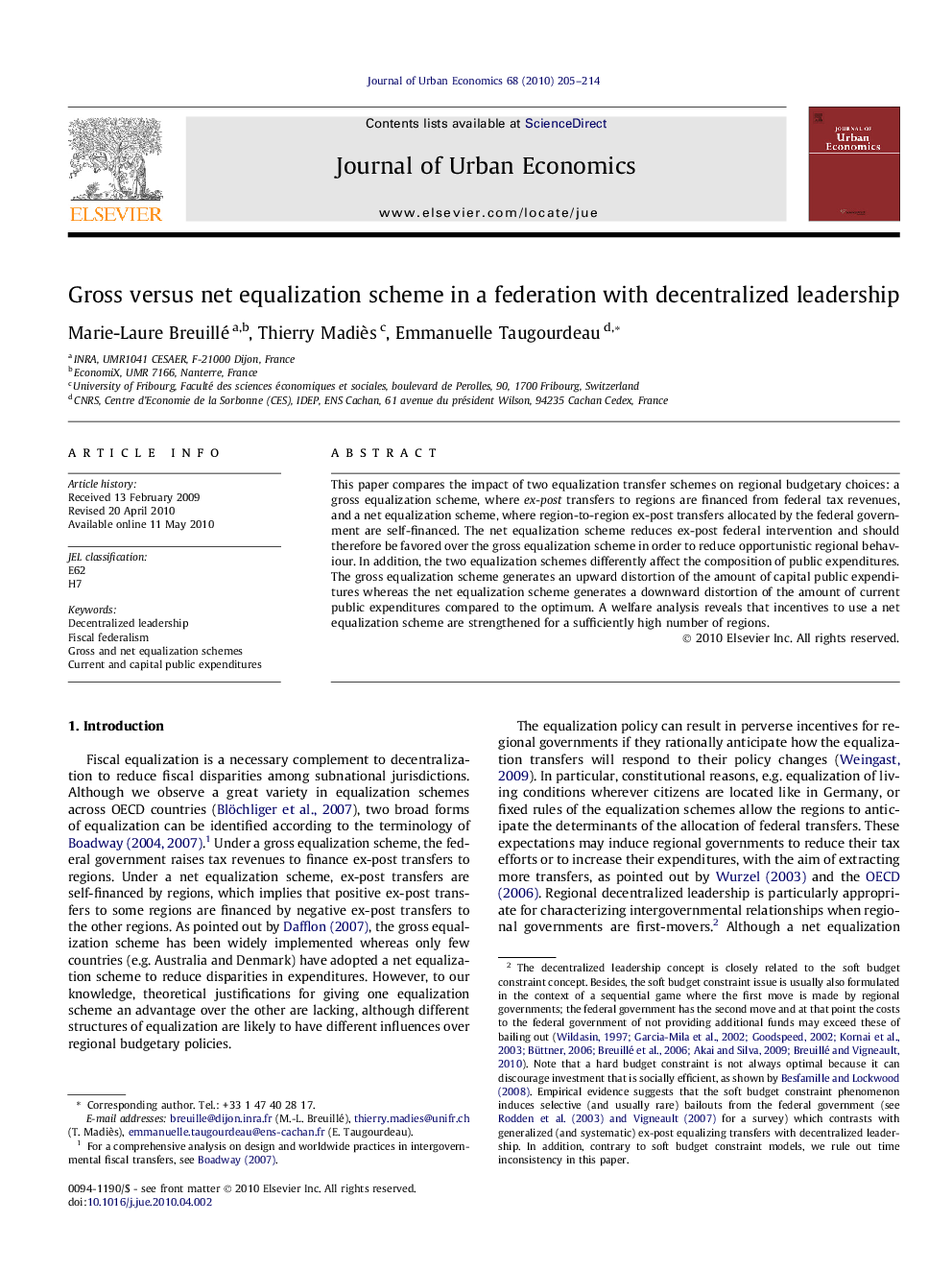| Article ID | Journal | Published Year | Pages | File Type |
|---|---|---|---|---|
| 971289 | Journal of Urban Economics | 2010 | 10 Pages |
This paper compares the impact of two equalization transfer schemes on regional budgetary choices: a gross equalization scheme, where ex-post transfers to regions are financed from federal tax revenues, and a net equalization scheme, where region-to-region ex-post transfers allocated by the federal government are self-financed. The net equalization scheme reduces ex-post federal intervention and should therefore be favored over the gross equalization scheme in order to reduce opportunistic regional behaviour. In addition, the two equalization schemes differently affect the composition of public expenditures. The gross equalization scheme generates an upward distortion of the amount of capital public expenditures whereas the net equalization scheme generates a downward distortion of the amount of current public expenditures compared to the optimum. A welfare analysis reveals that incentives to use a net equalization scheme are strengthened for a sufficiently high number of regions.
